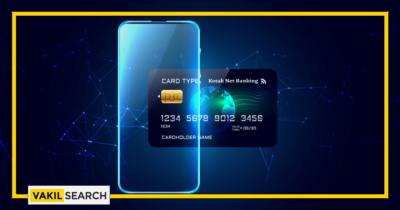Whether you want to begin a franchise business or not, this informative post will assist you in understanding how the process works and its difference from traditional entrepreneurship.
Franchising and Entrepreneurship are birds of a feather that do not always flock together since, from a far, they provide commercial ideas for services and products.
Walking through life accompanied by a template may be catapulted to your major breaks while stifling originality. Creating from the ground up without a template, on the other hand, might be the most painful option; figuring out and troubleshooting every hurdle can toughen skins and aid when swimming against the tide.
Whether you want to begin a franchise business or not, this informative post will assist you in understanding how the process works and its difference from traditional entrepreneurship.
Franchise: What Exactly Is It?
Franchises are pre-established businesses with a lower failure rate. This common concept is typically what attracts consumers to purchase a franchise. A franchise charge combined with a smart business concept yields immediate returns.
The viewpoint of the business models distinguishes Franchising from Entrepreneurship. A closer look tells us that both business models demand a distinct skill set, with one appealing more organically than the other.
One thing regarding knowledge is that it allows you to make more educated business decisions. So, whether or not you want to launch a franchise, this post will assist you in grasping a lot of the process flow when it comes to Franchising and Entrepreneurship.
Franchising and Entrepreneurship: Differences
The following are the seven key differences between being a franchisee and being an entrepreneur:
Risks and Benefits
Risk is everywhere; thus, we walk through life attempting to reduce our risk via our attempts. Who wouldn’t desire less risk and higher rewards? When hedging bets, investors utilise this metric – more benefits or less risk – to choose the most outstanding and safest asset class.
Entrepreneurship, by definition, has high risk in terms of benefits since you do not have the bliss of a template. Nevertheless, because of the franchisor’s backing and structure from the support system, the franchisee is relieved of the majority of the risk.
While the risk of Franchising is lower, it’s critical to understand the dangers associated with managing a franchise. Understandably, no firm is completely risk-free. It’ll face the same dangers as any other firm, such as competition, recessions, and location. An entrepreneur bears all of the risks in the business. Before making any strategic judgements, they must evaluate the pros and cons.
Experience Gap and Knowledge
Entrepreneurship necessitates extensive business knowledge and expertise, whereas franchises don’t necessitate experience and extensive business knowledge.
Most franchises have a back-end support system and structure in place for running and promoting the business. It indicates that franchisees should be concerned with management rather than the processes and infrastructure. On the other hand, entrepreneurs often require an efficient structure and strategy to prosper since their operation depends on the efficacy of their structures and systems, which they must control organically.
Out-of-the-box Process vs Stifled Creativity
The decision between Franchising and entrepreneurship will significantly impact your business picture. The one stifles innovation, whereas the second challenges you to contemplate beyond the box. A franchisee follows the regulations.
Being a franchisee, you’re theoretically a company owner, but you do make the decisions; you have a mentor, i.e. your franchisor. They inform you how to manage your business, and you sign a deal to follow the Franchise Business Online.
Because you cannot update the brand logo, introduce new items, or tune the business owing to market realities. Furthermore, the franchise might supply you with various marketing materials (although you might’ve some liberty in promoting or selling locally via events, social media, or newspaper advertisements).
In contrast to the franchise business model, an entrepreneur can adjust or change a model, philosophy, culture, and even functioning in response to market realities. They generate fresh concepts for their product’s ‘how’.
Development
Entrepreneurship – an organic business model – can be outgrown by a franchise model. Back-end assistance is already available to the franchisee, a stepping stone to company success.
Franchisees like a plan because it has done part of the job for them; all they have to do is act in accordance with the blueprint. A franchisor must also have a chalked-out training strategy, substantial documentation, fantastic training programmes, and a superb sales presentation to demonstrate to purchasers that these aspects are in place.
On the contrary, entrepreneurship necessitates your tears, sweat, and blood in order to flourish. You must physically put forth the effort. It’s all your job, with no assistance and no structure. Your progress is proportionate to your inputs and actions.
Financial Requirements and Inputs
When joining the company environment, laying your money in a franchise provides your finances with an accurate amount. You will know how much money you need to invest based on the franchisor. You are more likely to get a franchise financing programme or bank loan. However, your model must be compatible with their T&C.
On the contrary, an entrepreneur works with an unproven and new company plan – no structure or assistance. Funding will be more challenging for the entrepreneur to obtain.
Entrepreneurs are frequently unable to secure loans owing to the risk linked with the total amount of money needed and new firms. It implies they must raise funds on their own through friends and family, crowdsourcing, bootstrapping, or investors.
Brand Identification
Like any other firm, entrepreneurship and Franchising require a robust brand identity. On the other hand, franchises are constantly concerned with their brand recognition from the start. Brand awareness is not a problem because it’s one of the main reasons they obtained a franchise.
As a result, clients will be aware of your offerings, increasing your sales. By purchasing a franchise, you’re essentially purchasing a turnkey business that’s all set to go – a plug-and-play approach. An entrepreneur creates the reputation of his brand from the start. They learn the ins and outs of what doesn’t work and what works. They will occasionally make blunders that may harm their brand.
Success and Failure Rate
You are more likely to prosper as a franchise owner compared to a traditional entrepreneur who needs to begin from zero. The franchise business model provides you with all of the required assistance and framework that has been tested and established. They typically use the same system and are responsible only for their daily operations. They also receive training in marketing, product line, dealing with employees, and other areas of their everyday duties.
Conclusion
There is no one-size-fits-all business model for Franchising or entrepreneurship: https://www.mca.gov.in/MinistryV2/incorporation_company.html. It is critical to grasp the distinction between beginning your own business and purchasing a franchise. In case you have queries, please reach out to Vakilsearch. You should weigh the benefits and drawbacks depending on your interests and personality. You may use anyone. Paying great attention to the marketplace, on the other hand, will work more miracles than you may think.
Read More:
- Business Franchise Agreement format
- Remember Before Starting a Franchise Business
- Top 5 Requirements for Starting a Franchise










